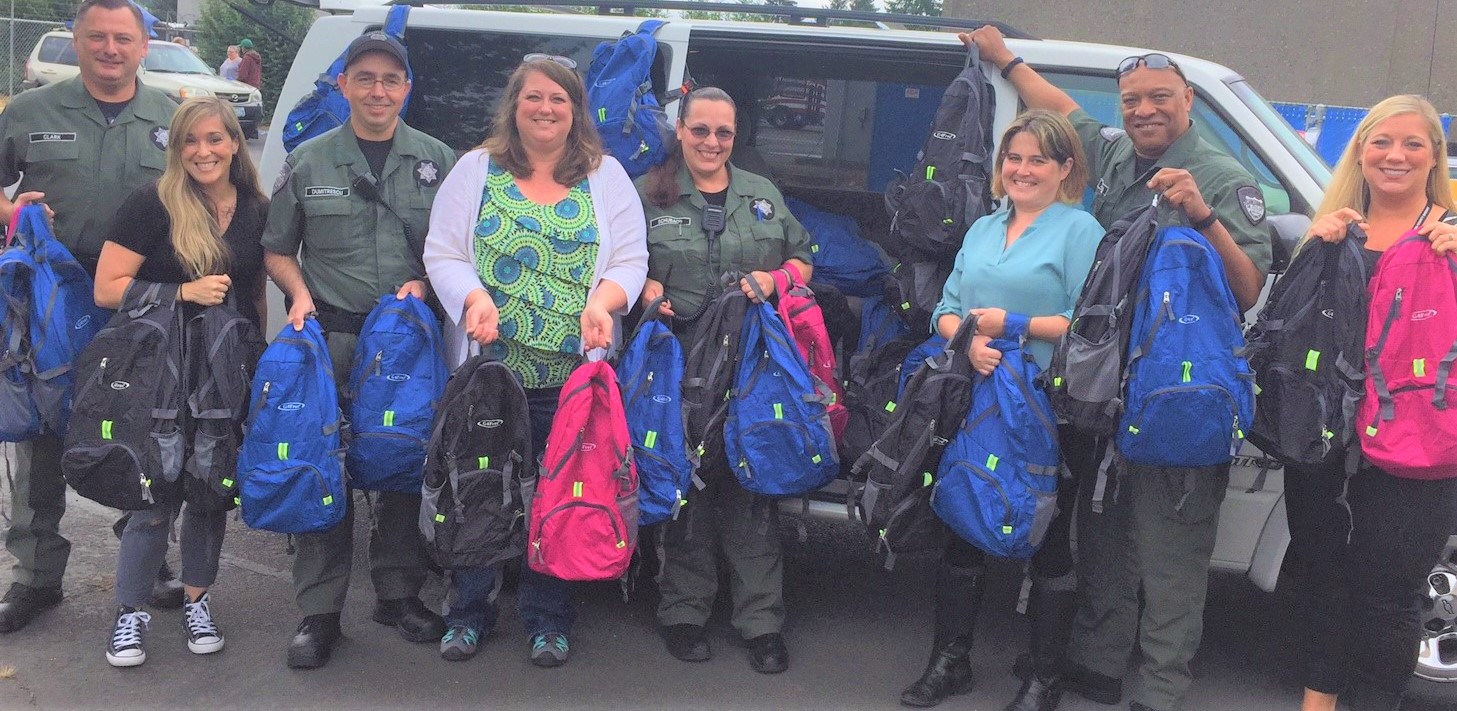By Melissa Baker & Charlene Welch, Council for the Homeless

Pictured above staff from the Clark County Jail Reentry program along with CFTH Housing Coordinators provide needed supplies to people exiting jail.
A new report from the Prison Policy Initiative titled Nowhere to Go: Homelessness amongformerly incarcerated people explores the link between homelessness and incarceration in the United States. The research shows that formerly incarcerated people are nearly ten times more likely to be homeless than the general population. The risk is even higher for people who have been incarcerated more than once, and for women and people of color.
We are seeing this same phenomenon play out locally in Clark County where in 2017, approximately 25% of people in the jail identified as being homeless.
Knowing we needed to do more to help people who are unsheltered and exiting jail get into housing and access other supports, Council for the Homeless partnered with the Clark County Jail Re-entry Program to apply for grants. We were fortunate to receive overwhelming enthusiasm and funding from the Giving Circle of Clark County. This funding allowed Council for the Homeless and the Re-entry Program to collaborate in order to serve people being released from the Clark County jail into homelessness.
The funds were used to break down barriers to accessing employment, skills training, drug or alcohol support, housing assistance, mental health support and other assistance individuals needed to remain stable and out of the jail. To bust those barriers, 260 people received telephonic housing assessments through the CFTH Housing Solutions Center while in jail and 130 were given a basic need backpack containing a hygiene kit, food, sleeping bag, and bus tickets when they exited jail. Of those receiving housing assessments, over 35% have already been referred to a local housing program for assistance.
One person reported the food pack and a bus pass helped her to get to a Department of Corrections check in appointment and then make it to a free meal at a local shelter. This helped her think beyond going back to jail as she sought more a more stable situation. Another person stopped by the jail after being released for a few weeks and shared the basic need items helped him keep things together until he could access inpatient substance abuse treatment. Another person shared, the housing assessment gave them hope that there was something beyond the jail walls waiting for them. That same person is now housed in a clean and sober shared living situation after receiving move-in assistance.
While combating jail recidivism for people experiencing homelessness is a considerable challenge, individual successes are a direct result of the strong, and connected partnerships and resources Clark County offers. Most importantly, assistance like the Giving Circle grant help to instill hope for a better, more stable, housed tomorrow for those who may have lost their hope along the way.
